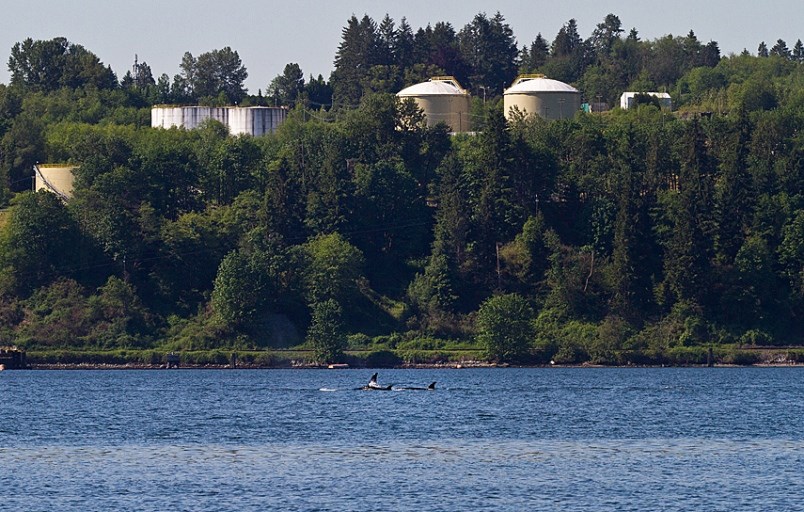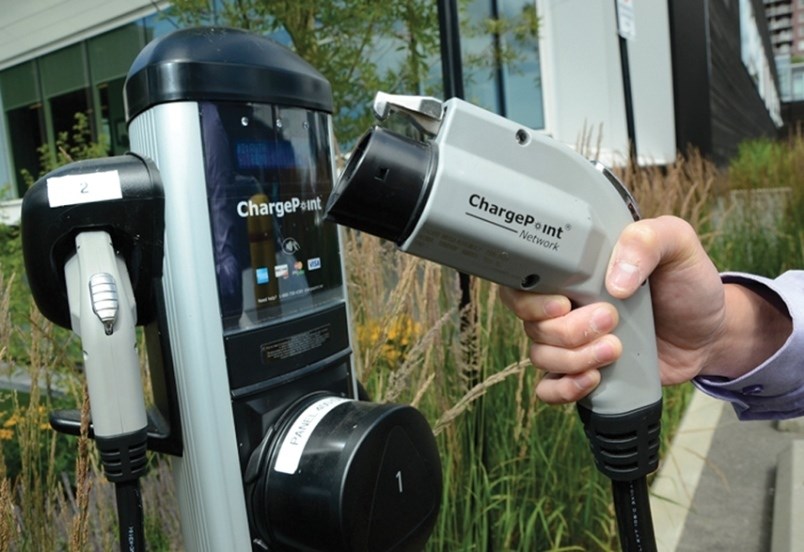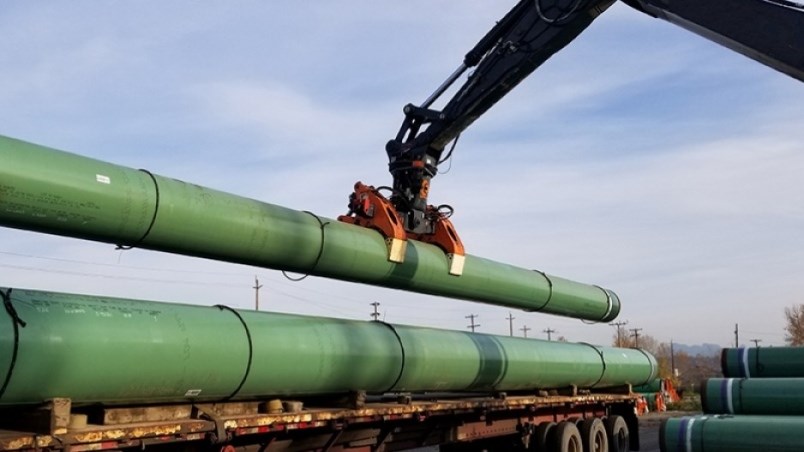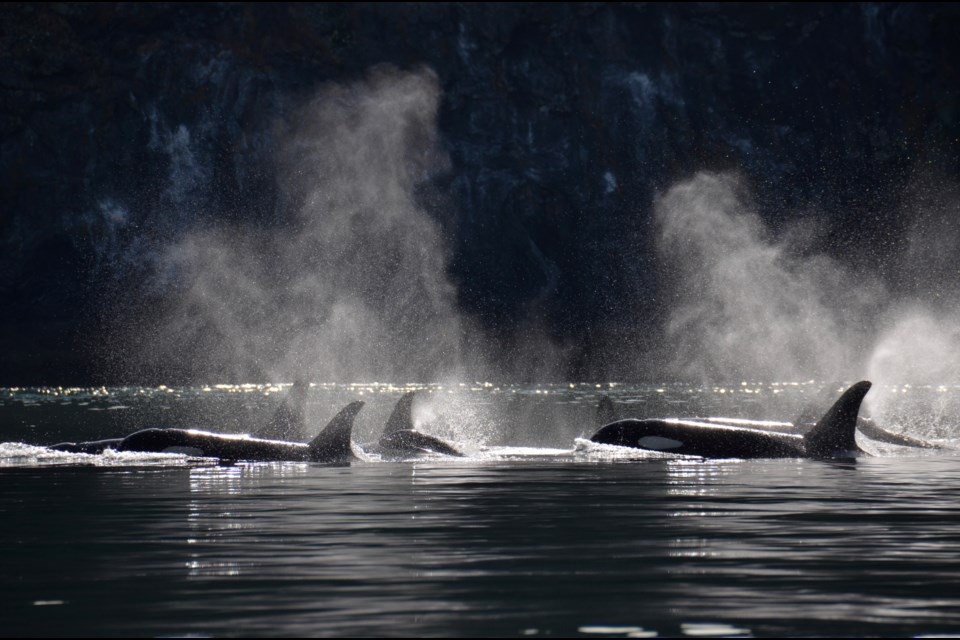In a week when teen climate activist Greta Thunberg addressed the UN and youth “climate strikes” have been taking place around the world, the issue of climate change and the environment has been top of mind for voters.
Most local candidates said it’s a topic they hear about on the doorsteps.
But the candidates and their parties differ on both the urgency of the issue and what measures should be put in place to combat global warming and protect the environment.
For Amita Kuttner, the 28-year-old astrophysicist running for the Green Party in Burnaby North-Seymour, addressing climate change is, perhaps not surprisingly, the No. 1 concern.
“One of the things that people like to say is there is no economy on a dead planet,” Kuttner said.
“It’s a crisis. What we need to do in terms of getting off fossil fuels and switching our economy over, that stuff is pretty well laid out. It just takes political courage to do it.”
Among the planks of the Green Party platform is doubling current carbon-reduction goals to see greenhouse gases cut to 60 per cent below 2005 levels by 2030.
Included in that: cutting fossil fuel subsidies, upgrading transit infrastructure to allow access to electrified public transit in urban centres and “retrofitting every single building in Canada to ensure that it uses less energy.”
Kuttner said that transition will act as a boost to the economy. “A lot of it will end up paying for itself,” they said.
Kuttner said their personal history – which includes their mother being killed in a North Vancouver landslide that swept through the family home in 2005 – shapes the way they view the climate issue. Too often, “getting ready for extreme weather – for mitigation and adaption – gets left out of the conversation,” they said.
Kuttner’s riding also contains the terminal for the Trans Mountain pipeline and says the Greens would cancel the planned expansion project. “To me there’s countless reasons why it’s a bad idea,” they said. “We need to wind down our entire production and use of fossil fuels.”
Kuttner is also opposed to development of LNG through fracking and would like to see higher standards for wastewater treatment in the Lower Mainland.
They’re also concerned about the accumulation of plastic in the environment. “My campaign is not using plastic,” they said. “We’re using cardboard lawn signs.”

Svend Robinson, a longtime NDP MP who is making a political comeback attempt in the same riding of Burnaby North-Seymour, said concern about climate change laid out in the UN’s Intergovernmental Panel on Climate Change is one of the big reasons he has jumped back into politics.
“This next election is really the last chance that we have to turn things around if we take seriously the warning of the IPCC,” he said.
Robinson said he’s also “deeply concerned about the huge and unacceptable risk that the Trans Mountain pipeline poses to our communities on both sides of the water.”
“People think of it being a pipeline expansion. It’s far more than that. It’s 14 huge new tanks on Burnaby Mountain in a residential area. It’s over 400 tankers every year in Burrard Inlet,” he said. “The risk of a spill is huge and the consequences would be devastating.”
Robinson said he’s hoping for a minority government in which the NDP could play a key role in halting the pipeline project.
Robinson said he’s got the track record to make sure his constituents’ voices are heard on environmental issues – noting he’s the only MP who served time in jail for protesting logging in Clayoquot Sound back in the 1990s.
Incumbent Jonathan Wilkinson, running for the Liberals to keep his seat in the riding of North Vancouver, has frequently been the point man for the government on B.C. environmental issues.
“I think what young people are saying they want to see a path towards a future which is a very low carbon future,” he said. The Liberals have committed to getting to “net zero” carbon emissions by 2050, he said.
Already the Liberal government has looked at ways to reduce emissions in four key areas and “the focus is on exceeding those targets,” he said.
Measures include phasing out coal-fired power and expanding charging infrastructure for electric vehicles.
The government’s carbon tax – already in place in B.C. – is another key way to address climate change, he said.
“We refer to it as a price on pollution. Pollution shouldn’t be free.”
In B.C., the carbon tax has had an impact, he said. “Virtually every economist in Canada will tell you it’s the most efficient way to reduce greenhouse gas emissions.”
Wilkinson defends the Liberal government’s decision to buy the Trans Mountain pipeline, saying Alberta oil will continue to be sold as long as there’s a global demand for it. “The question: is do you want it to be transported by rail or by pipeline,” he said.
“If you decided you were going to stop all oil production in Canada tomorrow, it would have zero impact on the climate issue,” said Wilkinson. “The oil produced in Canada would be replaced by oil from Saudi Arabia or Iran or Venezuela.”
Wilkinson said the more important goal is to lower the demand for oil.
Other environmental issues include the need to protect threatened species like the southern resident killer whales, to ban single-use plastics by 2021 and force those who produce plastic packaging to pay for recycling it, he said.

Gabrielle Loren, the Conservative candidate in the West Vancouver-Sunshine Coast-Sea to Sky Country riding, says she’s heard concern for the environment voiced by constituents throughout the riding.
Loren agrees but says solutions can’t just be local. “We also need a national strategy and a global strategy.”
The Conservatives plan to axe the carbon tax, said Loren.
“A tax makes virtually no contribution to a global fight against climate change,” said Loren, because to really have an impact it would have to be significantly higher than it is. “We’d be looking at $2-a-litre gasoline,” she said.
Instead, the Conservatives are touting development of made-in-Canada technology as the key to dealing with climate change.
The Conservatives are also in favour of expanding electric vehicle charging infrastructure and offering tax credits to retrofit buildings, so they emit less carbon.
Loren says the Trans Mountain pipeline expansion should go ahead. “We bought it. We paid for it. We’re going to use it,” she said. “At this point it’s a done deal. Let’s get the oil to market. We can’t go cold turkey.”

Robert (Doug) Bebb, the candidate for the People’s Party of Canada in the West Vancouver-Sunshine Coast-Sea to Sky Country riding, is also in favour of the pipeline expansion.
Bebb – and his party – are also unique in that they don’t believe there’s a climate crisis.
“We don’t believe there’s any climate emergency,” he said.
Bebb’s party believes global warming is a result of natural processes that will correct themselves and that science has been “politicized” to cause “hysteria” around the topic. “We’re the only party that’s going to give you an alternate view,” he said. “The rest of them are all trying to scramble after this global warming vote.”



